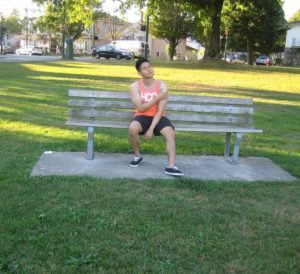A pinched nerve can arise for various reasons. The compression of a nerve in the neck or shoulder can trigger shoulder blade pain.
Age-related changes, overuse and injuries are the usual causes of this form of nerve compression. The indications of a pinched nerve tend to vary and might arise intermittently or continuously. Since the pain in the shoulder blade arises due to various reasons aside from a pinched nerve, further medical assessment is required for an accurate diagnosis and treatment.
Close look on the indications of a pinched nerve in the shoulder

Pain
Shooting, burning, stinging, aching or piercing pain in the shoulder blade generally occurs if a nerve that supplies the area is crushed. Depending on the site of compression, the pain might radiate to other parts of the shoulder or into the hand and arm.
Muscular weakness
Muscle weakness in the shoulder area or arm typically goes together with a pinched nerve linked with pain in the shoulder blade.
The muscles that are involved vary depending on the area of compression. The doctor will assess the strength of the individual muscles in the shoulder region and arm to determine if the shoulder blade pain is due to nerve compression and the specific location if the pinched nerve is identified. In addition, abnormal muscular reflexes might also be an indication of nerve compression.
Tingling and numbness
A pinched nerve that instigates pain in the shoulder blade might also trigger tingling or numbness in the shoulder, hand or arm. Just like with other symptoms, the exact site of the sensory irregularities depends on the site of compression.
The abnormal sensations might come and go or alleviated by repositioning. If there is severe compression, it can cause continuous sensory irregularities.
When to seek medical care
It is vital to seek immediate medical attention if there is abrupt shoulder blade pain accompanied by any of these:
- Fever and chills
- Chest or jaw pain
- Shortness of breath
- Clammy skin
- Nausea or vomiting
- Rapid or pounding heartbeat
- Abdominal pain
- Dizziness, lightheadedness or fainting
